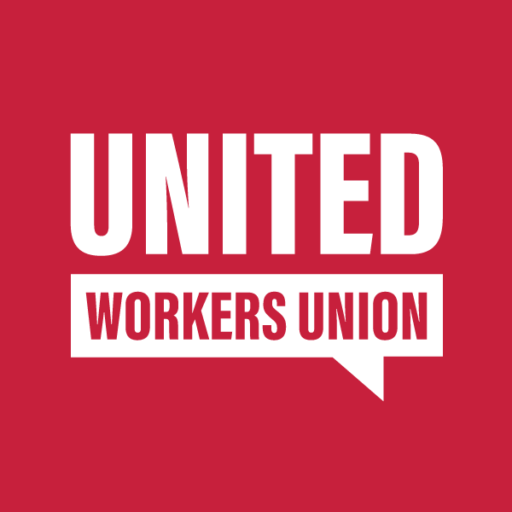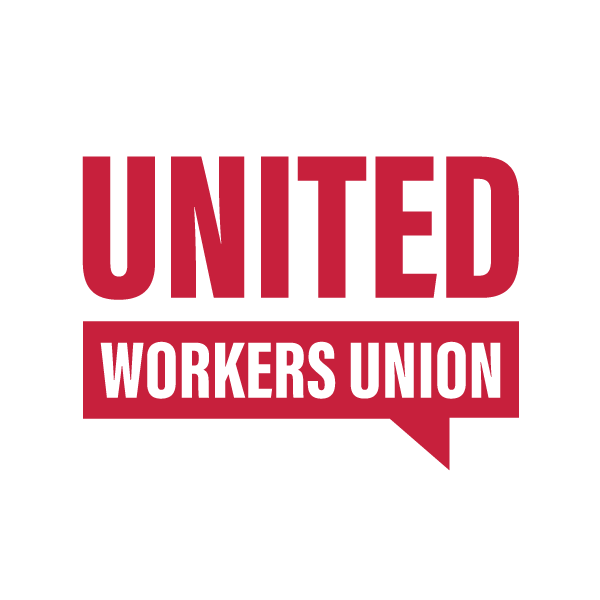covid-19 information for aged care workers
You UNION is here to help you stay informed and safe at work.
COVID is still out of control in aged care facilities across the country despite the best efforts of Aged Care workers to protect their residents.
Your union is here to support you and keep you informed about your health and safety rights at work.
frequently asked questions
Information, PPE and testing
- Training and information on the appropriate use of PPE
- Notifications about positive Covid-19 cases amongst residents and staff within your workplace
- Information about who your Health and Safety Representative (HSR) is, and how you can contact them
PPE is essential to keeping aged care workers safe during outbreaks of COVID-19.
UWU believes that ALL aged care workers – including personal care workers, nurses, cleaners, kitchen/hospitality staff, laundry staff and lifestyle/recreation assistants – should have ready access to appropriately sized, high-grade PPE, including P2/N95 masks, gloves, gowns, and eye protection.
Staff can refuse to perform work where there is an imminent risk to theirs or others health and safety if appropriate PPE isn’t available or they feel unsafe. If a staff member has concerns, they may also be able to raise it with their HSR or contact their Union for advice.
Rapid antigen tests (RATs) should be provided by your employer. Workers, residents, and visitors should be able to test as often as needed.
Workers should not be paying out of their own pockets to meet workplace testing requirements. UWU members are campaigning the Federal Government to make RATs free and readily available.
Testing Positive for COVID 19
There is no longer a legal requirement to isolate if you have tested postive to COVID-19.
However, if you have tested positive to COVID-19, you must not visit high-risk settings like aged and disability care facilities and hospitals, unless seeking immediate medical care, until at least 7 days after testing positive AND you have no symptoms of COVID-19.
You can find the most up to date information about what to do when you have tested positive for COVID from the Government here: https://www.health.gov.au/health-alerts/covid-19/testing-positive
Close Contacts
Close contact rules vary state by state.
In South Australia, close contacts who are essential workers (including aged care workers) are exempt from isolation and may continue to work after a negative test result, if they are asymptomatic.
In Queensland, close contacts who are essential workers (including aged care workers) are exempt from isolation and may continue to work after a negative test result, if they are asymptomatic and fully vaccinated.
In Western Australia, close contacts must follow the directive of the WA Department of Health, which may include having to isolate and test. Currently, there is no general exemption to isolation for aged care workers.
Covid-19 positive cases
We would expect an employer to let staff know about any COVID positive residents, so that staff can ensure that they are able to work safely. Where working with COVID positive residents, sufficient changes in PPE should be provide, as well as training.
Please contact the Union for assistance if you have any concerns about being able to work safely with COVID positive staff or residents.
Staff are generally not able to refuse to work with COVID positive residents.
However, an employer should take additional precautions if there is a confirmed case in the facility. This includes the provision of adequate PPE and training to ensure staff members are able to safely work with COVID-19 positive residents.
If a staff member or their family member is immunocompromised, it may be reasonable to request to not work with COVID positive residents, but it will depend on the circumstances.
Generally, staff members who have tested positive for COVID-19, and have completed the required isolation period, can return to work when they have fully recovered and have met the criteria for clearance from isolation.
The criteria may vary depending on circumstances of the workplace and states and territories may manage clearance from isolation differently.
At present these requirements are as follows (but please double check your State or Territory health website and/or follow any directives you receive):
QLD | You must isolate for 7 days (provided you have not had symptoms for the last 48 hours, or if the only remaining symptom is a very mild dry cough which is persistent but not getting worse). Alternatively, 10 days (since the date of your positive test result). See here. |
SA | You must isolate for 10 days. See here. |
NT | If you are vaccinated, you must isolate for 7 days (the positive test result day is day 0, and isolation ends at 12 noon on day 7). If you still have symptoms, you must remain isolation until day 10. If you are unvaccinated due to a medical exemption, you must isolate for 10 days. If you still have symptoms, you must remain in isolation until day 14. See here. |
WA | You must remain in isolation until you are cleared by WA Health. See here. |
Additional shifts
Staff may be asked by an employer to vary their work hours of shift lengths.
Shift lengths and hours of work must still comply with the applicable provisions in your Award, enterprise agreement or contract of employment.
This means that:
- An employer must also comply with the required notification of roster changes in your award or agreement.
- If you are part-time and have set hours of work, your employer may not be able to vary these hours without your agreement (although this may depend on what your contract/Agreement says).
- An employer and employee may agree to any changes (so if you want to work the additional hours you can).
- Your employer is still required to pay appropriate penalty rates and overtime rates.
- You must be provided with the minimum break between shifts.
You have a right to refuse overtime, where the request to work overtime is unreasonable.
If you If you are unsure, contact the Union for assistance.
Leave
There may be COVID leave and payments available in each State and Territory. A full list of current support available can be found on: https://unitedworkers.org.au/covid-19-information/
An employer may be able to cancel the staff member’s annual leave that had been approved, in order to cope with a staffing crisis etc. /
Whether an employer is able to cancel annual leave will be a question of whether the cancellation is reasonable in all of the circumstances. An employer should consider the impact on the staff affected, including costs incurred for planned holidays, and provide sufficient notice.
For employees working in private aged care facilities, an employer is not unreasonably able to refuse a request for annual leave. This will be a matter of weighing up the needs of the employee versus the needs of the employer to meet staffing requirements.
For employees of State Government aged care run facilities, there may be public health directives that require employees to return to work sooner.
If you have questions about your circumstances or need assistance, contact the Union.
The Pandemic Leave Disaster Payment is available through Services Australia as a lump sum payment to assist workers who can’t work because:
- You must self-isolate or quarantine due to COVID-19
- You’re caring for someone who has to self-isolate or quarantine due to COVID-19
You must also meet both of the following requirements to be eligible:
- You’ve lost at least 8 hours or a full day’s work
- You have liquid assets of less than $10,000 on the first day of the period you’re claiming for
For each 7-day period of self-isolation, quarantine or caring, you could receive:
- $450 if you lost at least 8 hours or a full day’s work, and less than 20 hours of work
- $750 if you lost 20 hours or more of work
To see the full eligibility requirements and to apply go to: https://www.servicesaustralia.gov.au/pandemic-leave-disaster-payment
In South Australia, a single payment of $300 is available for eligible people who need to quarantine while awaiting a COVID-19 test result. For further information on eligibility and to apply go to: https://www.covid-19.sa.gov.au/health-community/financial-support-for-individuals
In Western Australia, a single payment of $320 will be available from 5 February 2022 to workers who have been directed to quarantine while awaiting a COVID-19 test result and do not have access to paid leave or other income. For further information on eligibility see: https://www.wa.gov.au/government/publications/covid-19-coronavirus-test-isolation-payment
Further Information
Aged care residents can use Covid-19 emergency leave to take temporary leave from their residential care facility without losing their place. Emergency leave is available until 30 June 2022 and further information about it can be found here.
Rules about visitors vary state by state and change regularly.
In South Australia, adult visitors must be fully vaccinated for Covid-19 or have a medical exemption. There are also limitations on the number of visitors per day. For further information see: https://www.sahealth.sa.gov.au/wps/wcm/connect/public+content/sa+health+internet/conditions/infectious+diseases/covid-19/response+and+restrictions/aged+care+facility+visitation+in+south+australia+-+covid-19
In Queensland, adult visitors must be fully vaccinated for Covid-19 or be in an exemption category. For further information see: https://www.qld.gov.au/health/conditions/health-alerts/coronavirus-covid-19/current-status/public-health-directions/aged-care
In Western Australia, family members can visit but must wear masks. Further information can be found here: https://www.wa.gov.au/government/covid-19-coronavirus/covid-19-coronavirus-what-you-can-and-cant-do
More information can be found at the following sites:
- Federal Government – Advice for the aged care sector during Covid-19.
- South Australia: https://www.covid-19.sa.gov.au/
- Queensland: https://www.covid19.qld.gov.au/
- Western Australia: https://www.wa.gov.au/government/covid-19-coronavirus
If your question is not answered here and you are a union member, please get in touch with your local state office. You can find the details here.
TAKE ACTION TO CHANGE AGED CARE
Aged Care was already in crisis pre-COVID. But the pandemic has seen conditions go from terrible to horrifying. Join with fellow workers and take a stand to fight for a better sector, because residents and workers deserve better!
JOIN YOUR UNION TODAY
Aged Care workers deserve better. Standing together, we can change our workplaces.
Better Pay and Conditions
Union members stand together for better pay and conditions, respect, and job security.
Australian workers who are union members earn on average $250 more every week.
Back up and Support at Work
When you face poor treatment – like unfair dismissal, safety issues or harassment at work it’s important to be union.
At worksites across the country UWU Delegates, leaders and Health and Safety Reps have your back.
Training, Community & Information
Members have access to exclusive training and development designed to support you at work.
Being union also gives you access to a community of workers and expert information when you need it.
Join a Movement that Wins
When you’re union, you’re part of a national movement with a long history for standing up for what is right.
If you want a fairer Australia, joining your union is the best way to make a difference.
